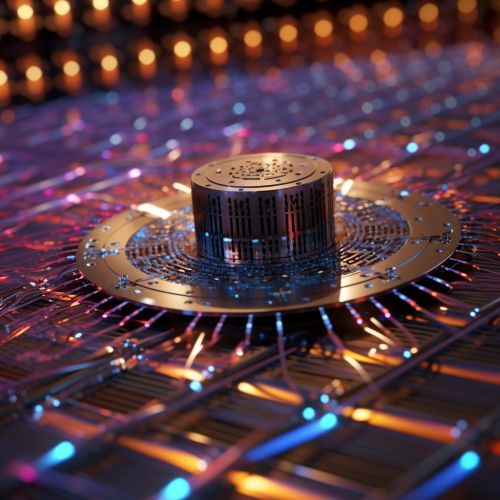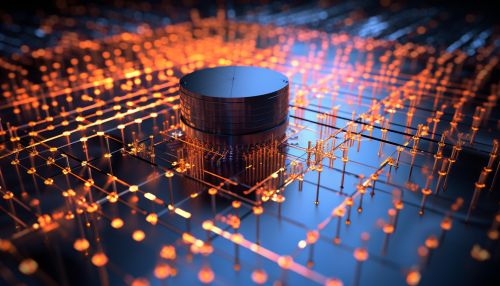Quantum Computing Hardware
Introduction
Quantum computing is a field of study focused on the development and application of quantum-based computation systems. Unlike classical computers, which use bits as their most basic unit of data, quantum computers use quantum bits, or qubits. These qubits can exist in multiple states at once, a property known as superposition, and can be entangled, meaning the state of one qubit can be dependent on the state of another, regardless of the distance between them.
Quantum Computing Hardware
The hardware of a quantum computer is what allows it to perform its unique, quantum-based operations. The main components of quantum computing hardware include the quantum processor, the quantum memory, and the quantum bus.
Quantum Processor
The quantum processor is the heart of the quantum computer. It is where the qubits are stored and where quantum operations are performed. The processor is typically made up of a lattice of qubits, with each qubit being able to interact with its neighbors. There are several types of quantum processors, each with its own set of advantages and disadvantages. These include superconducting qubits, trapped ion qubits, topological qubits, and photonic qubits.


Quantum Memory
Quantum memory is the component of a quantum computer that stores qubits for an extended period. This is a challenging aspect of quantum computing hardware due to the fragile nature of qubits. Qubits can easily lose their quantum state, a process known as decoherence, due to interactions with their environment. Various methods are being explored to create stable quantum memory, including quantum error correction techniques and the use of certain materials with low decoherence rates.
Quantum Bus
The quantum bus is the component of a quantum computer that allows for the transfer of qubits between different parts of the computer. This is necessary for performing complex quantum operations that involve multiple qubits. The quantum bus must be able to preserve the quantum state of the qubits during transfer, which is a significant challenge in the design of quantum computing hardware.
Challenges in Quantum Computing Hardware
There are several challenges in the development of quantum computing hardware. These include the aforementioned issues of qubit stability and transfer, as well as the need for extremely low temperatures for certain types of quantum processors, and the difficulty of scaling up quantum systems.
Qubit Stability
As mentioned earlier, qubits are extremely sensitive to their environment and can easily lose their quantum state. This makes it difficult to maintain a stable quantum system for any significant length of time. Various methods are being explored to increase qubit stability, including the use of quantum error correction techniques and the development of new materials with low decoherence rates.
Qubit Transfer
The transfer of qubits between different parts of a quantum computer is a significant challenge. The quantum bus must be able to preserve the quantum state of the qubits during transfer, which is difficult due to the fragile nature of qubits. Various methods are being explored to improve qubit transfer, including the use of quantum teleportation techniques.
Low Temperatures
Certain types of quantum processors, such as superconducting qubits, require extremely low temperatures to operate. This is because these qubits operate based on superconductivity, a state of zero electrical resistance that only occurs at very low temperatures. Maintaining these low temperatures is a significant challenge in the design of quantum computing hardware.
Scalability
Finally, scaling up quantum systems is a significant challenge. As the number of qubits in a quantum computer increases, the complexity of the system increases exponentially. This makes it difficult to design and build large-scale quantum computers. Various methods are being explored to improve the scalability of quantum computers, including the use of quantum error correction techniques and the development of new types of quantum processors.
Future of Quantum Computing Hardware
Despite these challenges, the field of quantum computing hardware is advancing rapidly. New types of quantum processors are being developed, new materials are being explored for their potential to increase qubit stability, and new techniques are being developed for qubit transfer and quantum error correction. The future of quantum computing hardware is likely to see significant advancements in these areas, leading to more powerful and reliable quantum computers.
